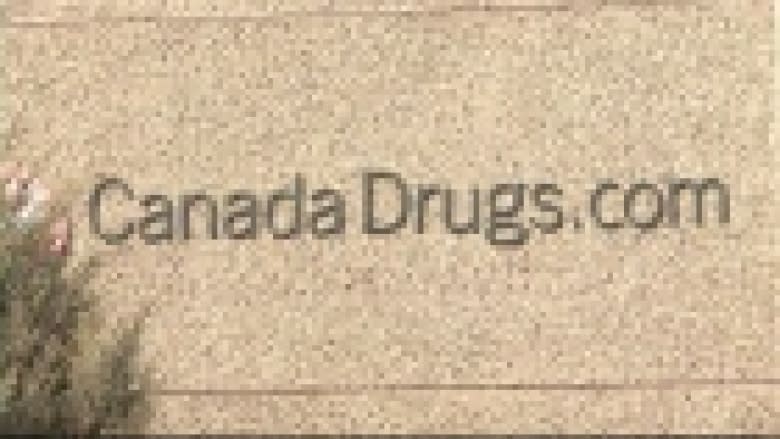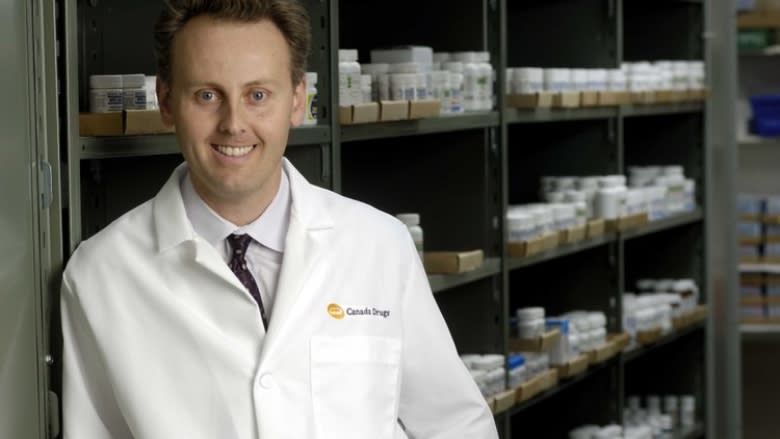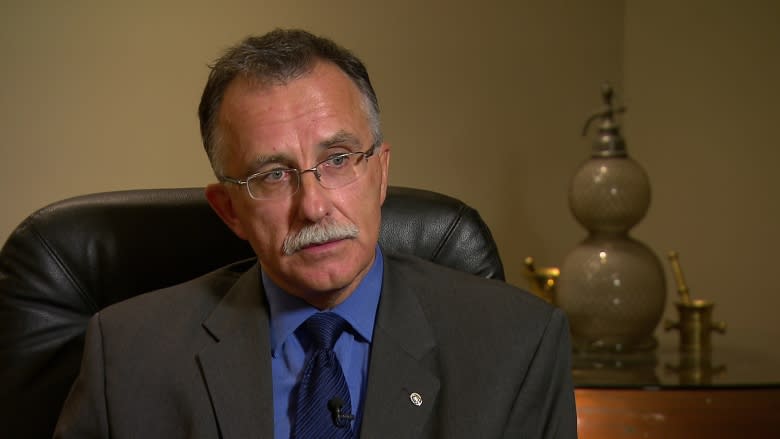U.S. man pleads not guilty in drug smuggling case involving Winnipeg internet pharmacy
An Illinois man has pleaded not guilty in an international internet pharmacy case involving Winnipeg-based company, CanadaDrugs.com.
Ram Kamath was the former director of pharmacy policy and verifications for an unnamed U.S. company, responsible for inspecting storage facilities kept by internet pharmacies.
He is accused of conspiring with Canada Drugs by storing batches of the company's drugs in the garage of his Illinois home in 2011.
According to the indictment filed in Montana, "the Internet pharmacy industry funneled benefits to Kamath through the inspections he conducted. In exchange, Kamath would help provide them with the veneer of legitimacy that comes with having been inspected by an 'independent' party.'"
The charges stem from a U.S. Food and Drug Administration investigation into the sale of $78 million worth of unapproved prescription drugs in the U.S.
It's illegal to sell medication to Americans that has been sourced overseas and not at facilities approved by the FDA.
Some of the drugs, sold by Canada Drugs and its affiliated companies, were mislabeled in a foreign language or missing the required "Rx only" symbol, the indictment says.
Two of them were counterfeit, according to the indictment.
"Canada Drugs purchased inventory from questionable sources and ultimately sold counterfeit versions of the drugs Altuzan and Avastin to physicians in the United States," it said.
Canada Drugs owner Kris Thorkelson as well as several related companies and people are charged with nine counts of criminal smuggling, conspiracy and money laundering tied to incidents that took place between 2009 and 2012.
They're also accused of falsifying customs documents to hide some of the product and not keeping the medication at the cold temperatures required to keep them safe.
Thorkelson's Winnipeg lawyer, Curtis Unfried, confirmed Tuesday they are aware of Kamath's arraignment and the allegations made in the indictment.
"However, we will not be commenting on Mr. Kamath, nor responding to the allegations contained in the Indictment, in the media," Unfried wrote in a statement to CBC News.
The FDA first issued warnings about the fake cancer drugs in 2012. Since then, several doctors who bought the medication and the people who supplied them have been found guilty and sentenced to fines or prison time.
Similarities to Strempler case
This case is similar to one involving Andrew Strempler, another Manitoba internet pharmacy pioneer, who sold his operations to Thorkelson before moving to Panama in 2006.
Strempler, 41, was sentenced to four years in prison in January 2013 for conspiracy to commit mail fraud in connection with the importing and selling of foreign and fake drugs to American citizens.
He was quietly transferred to a Canadian prison earlier this year. He was eligible for full parole in June. His release date is Dec. 1, 2015.
"There are very close parallels," said Jim Dahl, a former FDA investigator who now works as a pharmaceutical crime consultant in the U.S. "I'm sure with all the millions he's made, he's hired a team of lawyers to deal with this situation. Eventually, he'll have to face a judge on this matter."
"I don't know what the status is right now of the U.S. request to have him arrested by Canadian authorities … but it wouldn't surprise me if those legal processes were already underway," Dahl added.
Court documents state U.S. prosecutors will seek to extradite Thorkelson and the other defendants from Canada, the United Kingdom and Barbados if they don't voluntarily appear.
Canada's federal justice department would not confirm whether an extradition request has been made.
"The Department of Justice is the lead agency for extradition matters; however, we cannot confirm or deny any such request," Ian McLeod, senior media relations advisor replied in an e-mail to CBC News.
Roger Bate is a scholar at the American Enterprise Institute in Washington, D.C., who has studied both Thorkelson and Strempler as part of his book PHAKE: The Deadly World of Falsified and Substandard Medicines.
"I don't think either of those organizations wanted to trade in counterfeit medicines," he said. "But if you buy outside of the normal supply chain, you always run a risk that you might buy counterfeit medicine, and I think that's why the FDA targeted those two organizations."
Not cracking down on violations
Meanwhile, there are criticisms that Canadian authorities and regulatory bodies are not doing enough to crack down on the illegal sale of medications by Canadian pharmacies.
"Canada is, sad to say, a haven for international organized crime involving internet pharmacies," said Amir Attaran, a professor of law and medicine at the University of Ottawa.
He's been studying Canadian Internet pharmacies for years.
"We have Internet pharmacies on Canadian soil, especially in Manitoba and BC that are illegally selling medicines on the internet. Illegally in Canada and also illegally in the United States, and while the Americans have been serious about prosecuting the Canadians behind the crimes, the Canadian government refuses to," said Attaran.
Attaran believes the College of Pharmacists of Manitoba is also turning a blind eye to the conduct of some of its members.
Last year, he sent a complaint to the College in July 2014, asking them to investigate Canada Drugs, York Pharmacy and Candrugs Pharmacy.
"[Kris] Thorkelson is a pharmacist. He is subject to pharmacy laws of Manitoba. If the pharmacy college in Manitoba has doubt about whether it has jurisdiction over pharmacists in Manitoba, they're truly dangerously ignorant," Attaran said.
College registrar Ronald Guse said the college did investigate Thorkelson and Canada Drugs when the allegations first surfaced in 2012 and will do so again, depending on what takes place in the U.S. court case.
"I think we have to wait until the accusations or indictment comes to some sort of conclusion, see what evidence is presented, what details, facts are agreed or proven, and then we would look at it, yes," Guse said. "None of the charges have been proven, and I think the charges are around smuggling and money laundering so we'd have to look at the money laundering, whether that's pertinent to the practice of pharmacy. Smuggling might be, especially if it involves the movement of drugs, but keeping in mind it's the wholesale activity, which would involve more Health Canada's jurisdiction than ours."





